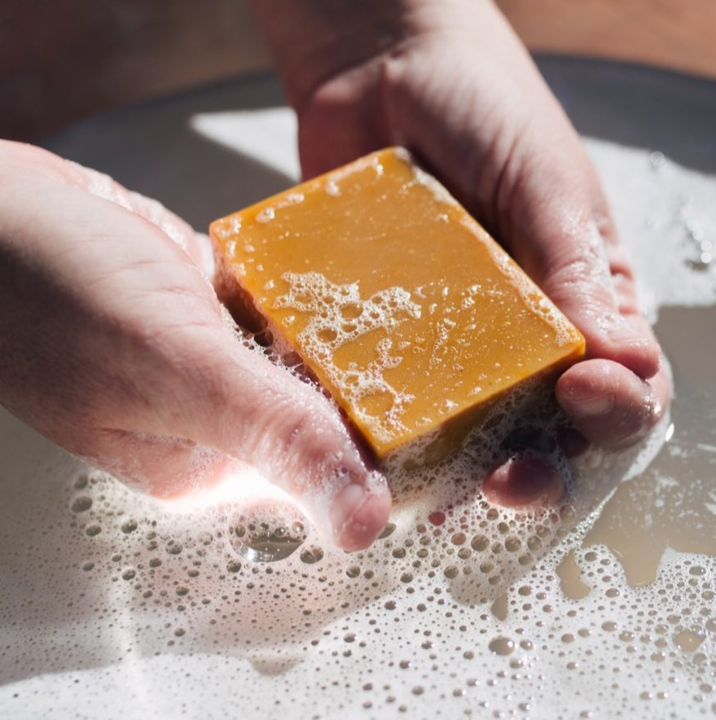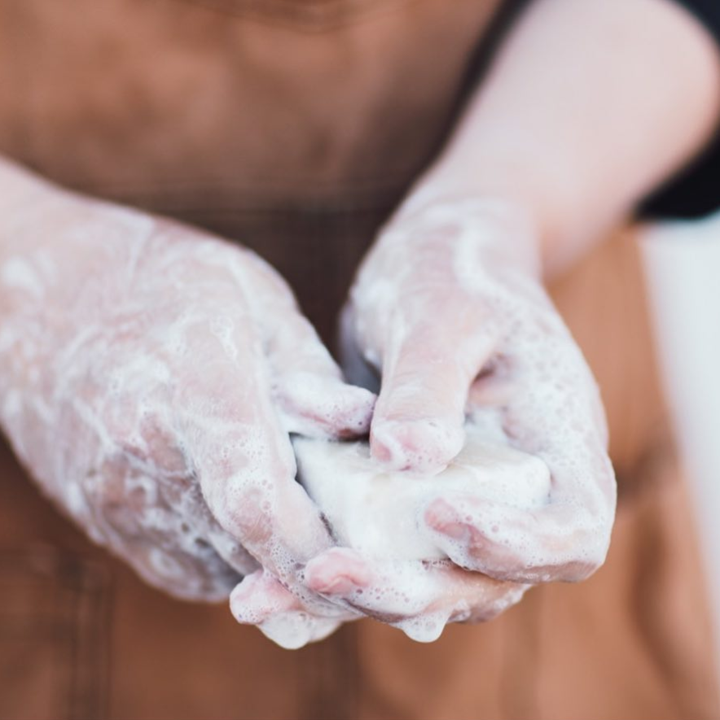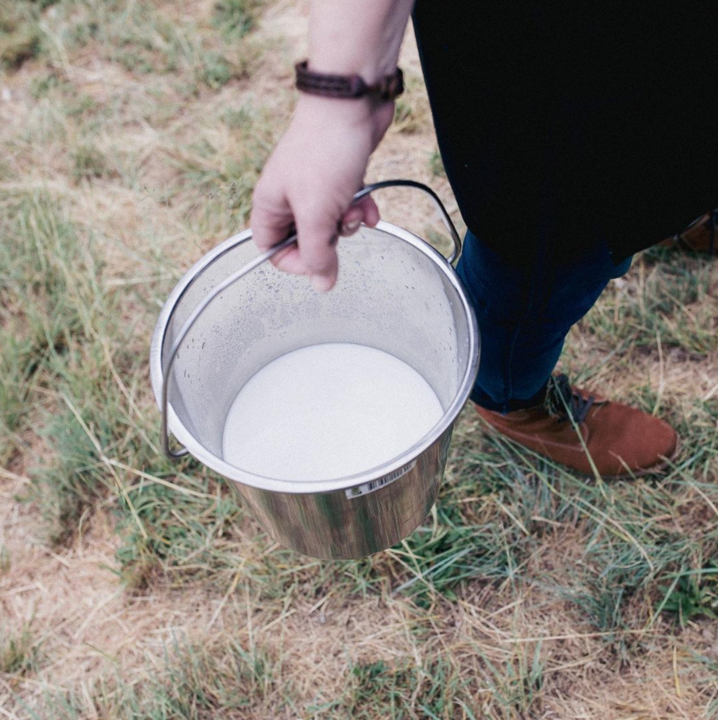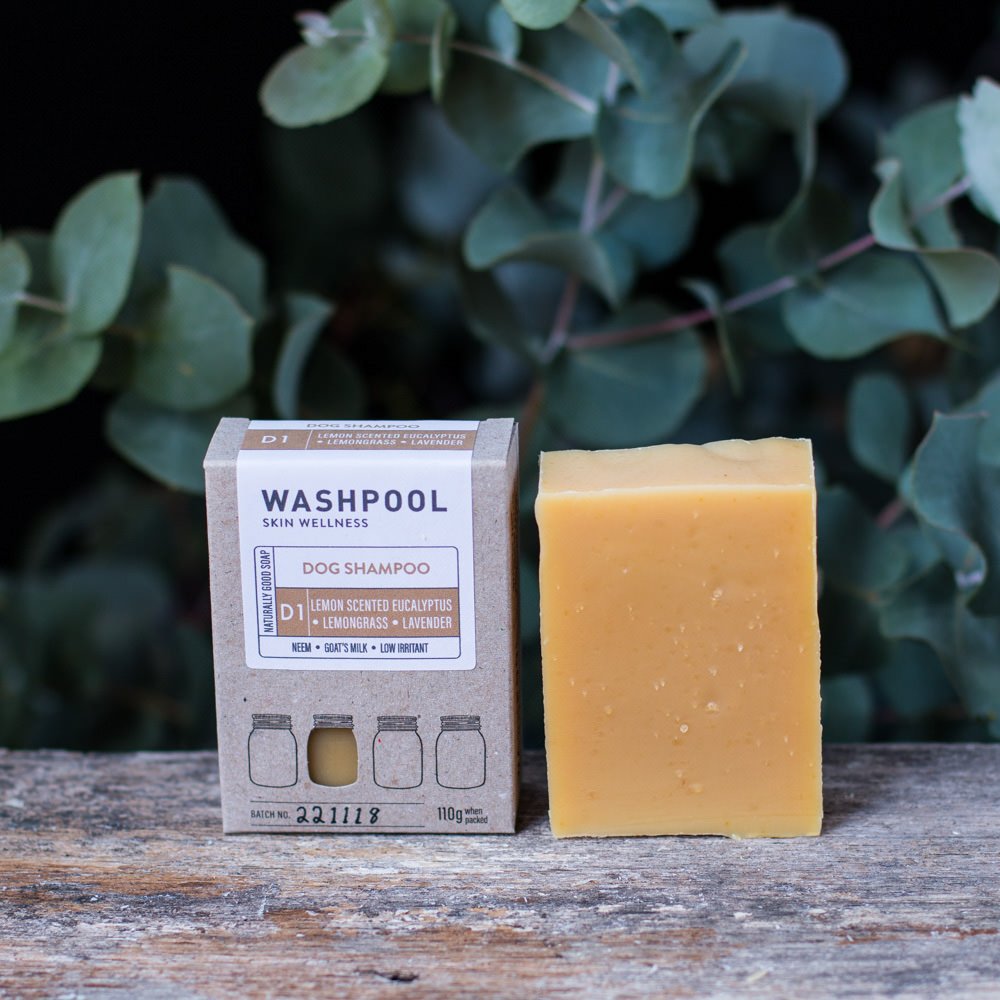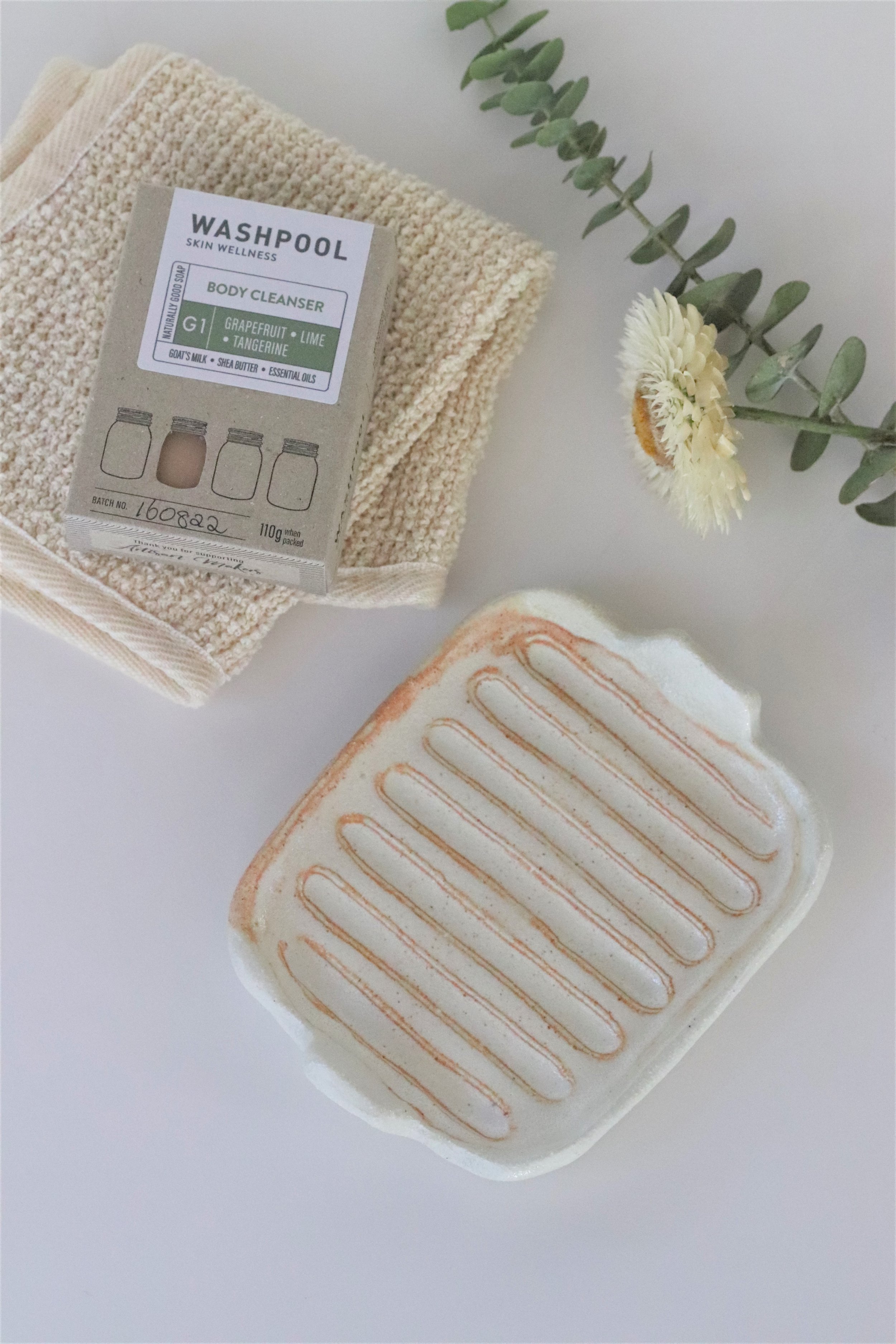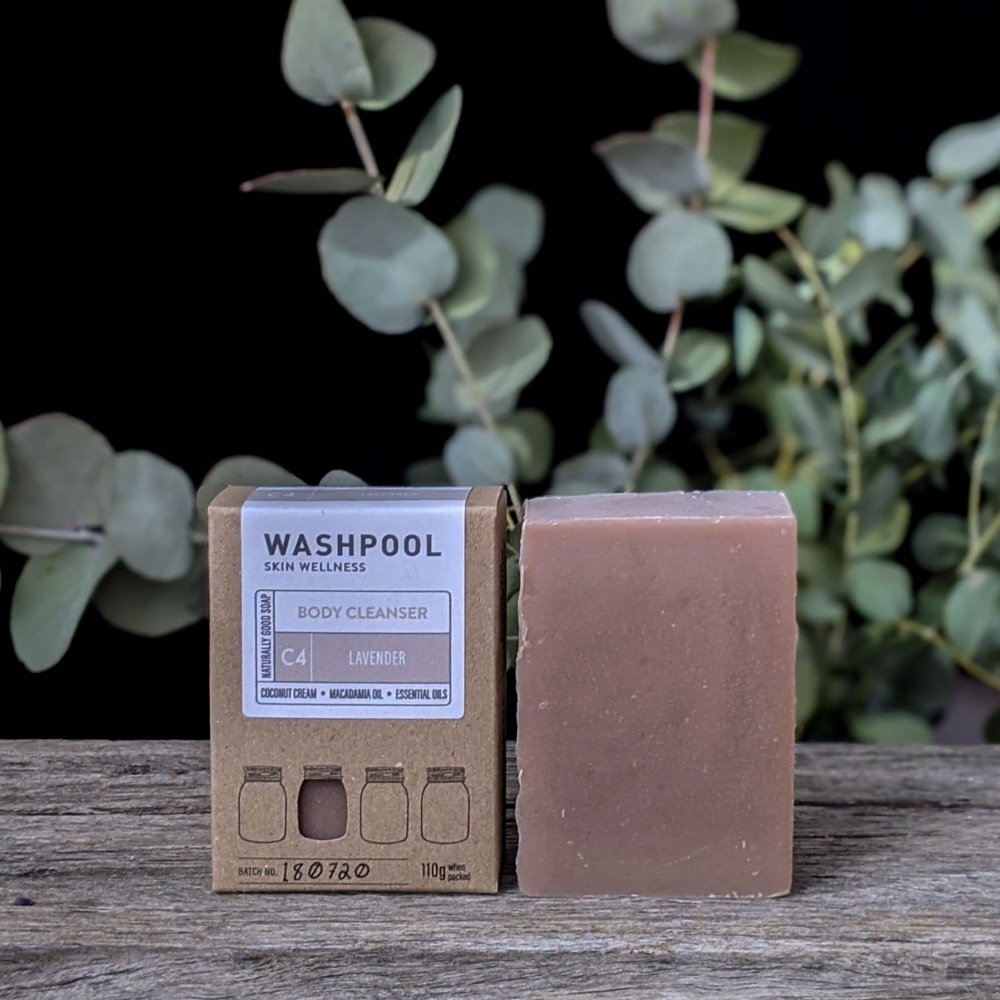Lets talk about soap baby!
The bar soap vs liquid soap discussion and the environmental impacts.
Image above courtesy from Washpool
If your a child of the 80’s like me, you probably grew up using bar soap and it wasn’t until your late teens or early 20’s that you used your first liquid soap in the home. Over the past 20 years liquid soap has become the soap of choice with supermarkets dedicating a huge area of shelf space to this category vs bar soap as the pure convenience of this luxury became more and more popular. Not only do we now need a hand liquid soap but we also apparently require a shower liquid soap, kitchen liquid soap and even the laundry, therefore our use of liquid soap overall has increased substantially. But what’s the difference between liquid vs bar soap in terms of their impact on our environmental health and how have we compromised convenience for this everyday luxury?
A 2009 Swiss study found that bar soaps have a lower environmental impact overall than liquid soaps in many important categories including carbon footprint, ecotoxicity, ozone depletion potential, and eutrophication potential. Apparently this is due largely to the higher energy requirements of producing the raw materials and plastic packaging for liquid soaps.
“From cradle to gate, liquid soaps require five times more energy for raw material production and nearly 20 times more energy for packaging production than bar soaps do.”
Even though we tend to use about 30 percent more heated water washing with bar soap, it was still apparently the overall environmental winner and better for your bank account.
Below are some great tips taken from whatsyourimpact.org to consider when switching to bar soap:
Look for soaps in minimal packaging, avoiding unnecessary plastic overwraps and extra layers. Many bar soaps are available in biodegradable and recyclable cardboard boxes and some local soap makers offer their product with no packaging at all or a simple paper label wrap.
Avoid potentially hazardous, both to us and the environment, chemicals by selecting a natural bar soap. Four of the most common chemical ingredients to avoid are Triclosan; Parabens; Sulfates (SLS - sodium lauryl sulfate and SLES - sodium laureth sulfate); and, Fragrance. Visit the Environmental Working Group's Skin Deep web site to find out the toxicity levels of specific products and ingredients - http://www.ewg.org/skindeep/.
Buy locally made soaps at farmer's markets or from nearby businesses to reduce the soap's transportation footprint.
Avoid soaps made with palm oil or look for soaps that are certified sustainable by the Roundtable on Sustainable Palm Oil (RSPO).
Completely unwrap bar soap and allow it to dry out for several weeks before you use it. Dry soap doesn't dissolve as fast when it comes into contact with water so it will last longer.
Keep your bar of soap out of water in between uses. Make sure your soap dish has appropriate drainage so your soap doesn't get soggy and dissolve faster.
Cut your soap bar into two or more smaller pieces. The piece of soap that isn’t being used isn’t being exposed to any water or humidity so it will last longer.
Use your leftover small scraps of soap. Push the small soap sliver you are replacing into the new bar after the first time you use it. The soap is soft from use and the two pieces will merge into one with no waste. Another crafty way to use soap slivers is to grate them up and add some warm water to make the shavings malleable enough to shape into balls. Cut the balls in half to make them last longer and to expose the unique pattern inside (if you have used different coloured soaps). Make sure to dry them out and let them harden for a couple of weeks before using.
Reduce your water consumption by turning the water off while you lather up.
What soap brand do I like to use?
For the past 3 years I have been using Washpool soaps for my family. They are handcrafted in Stanthorpe QLD (about 3hrs south west of where I live). Washpool handmake their beautiful soaps from natural ingredients and sustainably packaged in recycled paper wrap.
I have hand selected a range of their coconut and goats milk varieties so they are available for you on my website. I also enjoy making soap dishes from time to time to accommodate these lovely soap bars.
Apart from them being locally handmade from natural ingredients, I personally have found they help with my eczema and dermatitis. Using clay in the studio also dries my hand out considerably, so I need to nourish them as much as possible.
And as a cancer survivor, I decided to ditch toxins and reduce our checmical exposure as much as possible in our home including our washing power, dishwashing power, shampoos and soap, I have been able to keep my skin from having flare ups. I even us the Washpool Dog Soap for washing my dog!
If you would like to know what other products I have found beneficial and affordable, please feel free to email me.
Images by Melanie Hardy and Washpool Soaperie





